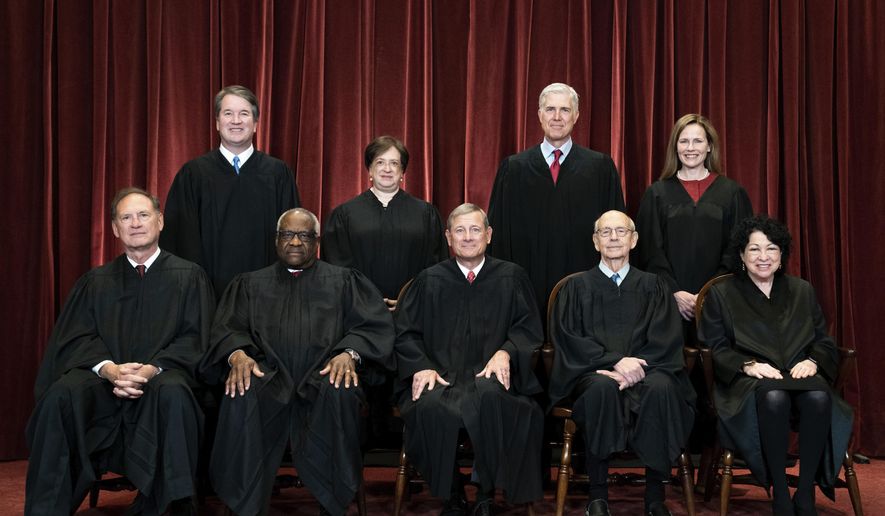OPINION:
Today’s decision overturning Roe v. Wade is NOT a national ban on abortion. This fact will assuredly come as a shock to most Americans — only 36 % of whom actually know abortion will not suddenly become illegal.
The seeds of misinformation have blossomed.
This misconception is completely understandable because, for years, abortion advocates, fear-mongering political pundits, elected officials, and many in the mainstream media have pushed the false narrative that overturning Roe is equivalent to ending abortion in America.
It isn’t.
In fact, Dobbs v. Jackson Women’s Health Organization — the decision that just reversed Roe and its progeny — does not federally prohibit abortion at all but rather deliver the decision-making power to voters and their elected representatives in the states. Abortion laws are no longer in the hands of unelected judges but, instead, will again be decided by you — the voter. For the first time in 50 years, when you cast a ballot for candidates in your district and/or state, you help decide who represents your values and policies — in totality — on the issue of life.
In 1973, Roe removed this most profound issue from the democratic process in what Justice Byron White, in his dissenting opinion, called “[a]n exercise of raw judicial power.” In so doing, the High Court invented the constitutional right to procure an abortion, holding that states have no authority to prohibit the procedure during the first trimester of pregnancy and little authority to prohibit it thereafter. In 1992, in Planned Parenthood v. Casey, the Court reaffirmed Roe’s core holding, announcing that women have the right “to have an abortion before viability and to obtain it without undue interference from the State” while excising the trimester framework from its abortion jurisprudence. (Of course, advances in medical technology have demonstrated fetal viability in advance of 24 weeks.)
Since those rulings, each state has been able to regulate, but not ban, abortion before the point of viability.
States with more liberal elected officials currently have abortion laws that do not protect the unborn — some even allow late-term abortions all the way up until the moment before birth.
Not surprisingly, states with more conservative elected officials currently have more restrictive abortion laws that provide greater protection to the unborn.
In many states, the state law mirrors Roe, so women living in these states will wake up to the same abortion access tomorrow as they have today.
This ruling doesn’t change that.
What does change, however, is that power is put directly in the hands of the people to decide the future of abortion in their states.
Sending the fate of ending abortions and life, more generally, back to the states means more focus on local elections — their efficacy and accuracy. It is obvious voters want their elected officials to represent their interests. Left-leaning voters will have different desires for and demands of their representation than Right-leaning voters.
Regardless, your interests will not be represented on abortion unless the candidates you want to be elected in your state win. And your chosen candidates may have less chance of getting elected if those elections are not free and fair.
The lies, half-truths, and propaganda will undoubtedly continue over what the cessation of Roe means and will continue to rage in the media at the national level. But the real story moving forward is at the local level: whether out of fear, anger, or concern, states that have been ignoring and dismissing election integrity should now understand its vital importance.
This past year, many state legislatures — some with bipartisan support — have pursued and achieved important election integrity measures — enacting laws like photo ID requirements, a ban on ballot harvesting, voter roll maintenance measures, and the prohibition on private money being used unfairly in elections, commonly known as Zuckerbucks.
These new laws will help protect every legally cast vote and every legal voter.
Legislatures and governors that protected voters this past legislative session will have election outcomes that enjoy a higher level of faith, trust, and confidence. These states ensured a more level playing field so that the war of ideas could be waged without the process being counted as a casualty.
Anything less jeopardizes the ability of pro-life or pro-abortion candidates to achieve victories in their state elections. Candidates must have an equal opportunity to get elected without being stymied or undercut by a state’s failure to protect voters.
Sadly, the decades-long bipartisan pattern after elections is that the winner defends the election process while the loser questions its integrity. Roe’s abolition may be just the issue to break this incessant cycle and force states to step up and make it easy to vote but hard to cheat.
- Hogan Gidley serves as America First Policy Institute’s Director of the Center for Election Integrity.




Please read our comment policy before commenting.